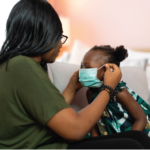Rheumatologists are in the unique position of diagnosing and treating rare auto-inflammatory and autoimmune diseases. Although systemic lupus erythematosus (SLE) often has textbook presentations, it is a heterogeneous condition with a wide variety of disease manifestations. In 2019, the European League Against Rheumatism and the ACR introduced new classification criteria to help diagnose this condition.1…







